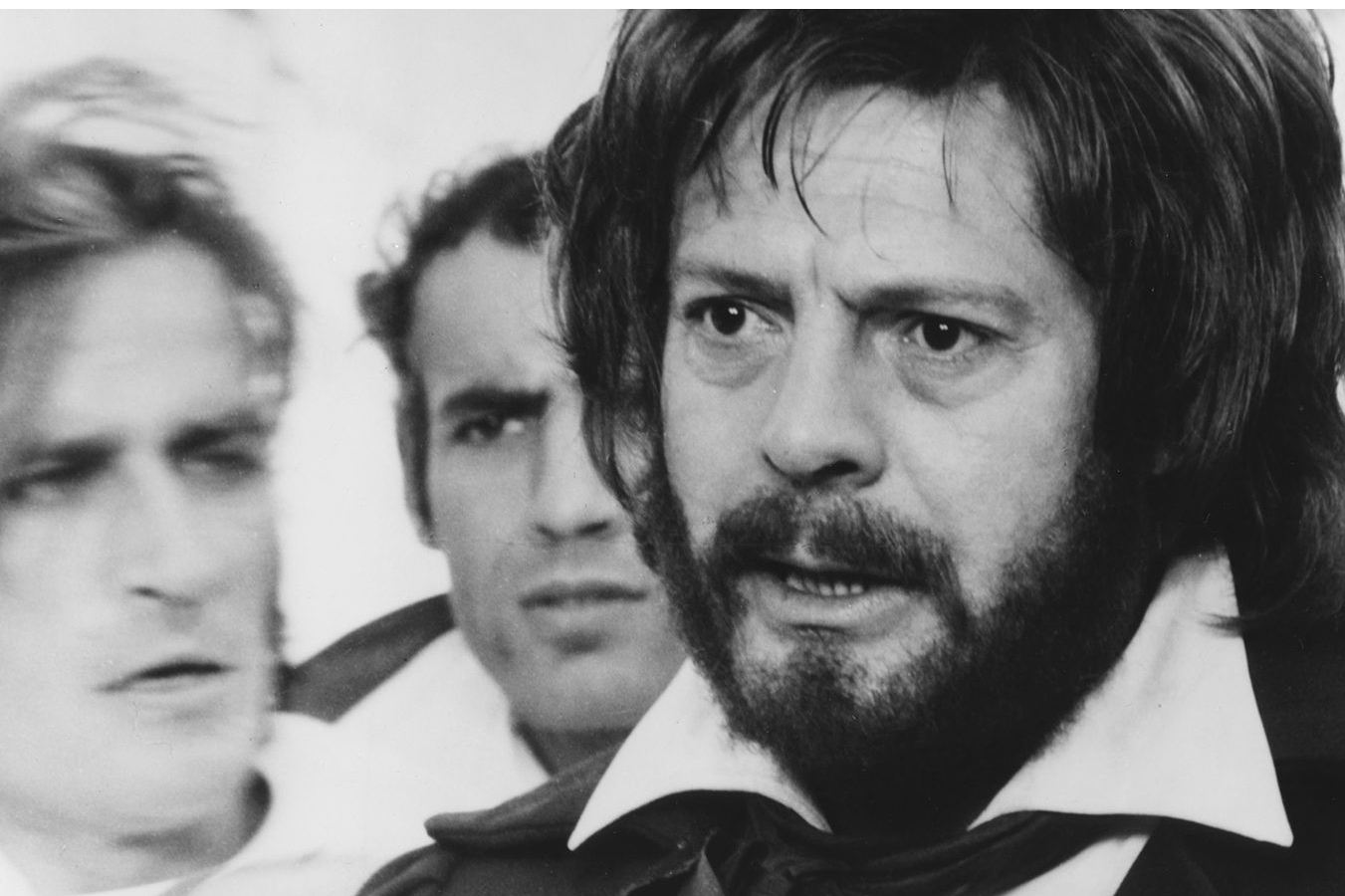CinemAperitivo: Allonsanfan [OmeU]
Italien 1974, R: Paolo Taviani, Vittorio Taviani mit Marcello Mastroianni, Lea Massari, Mimsy Farmer, 105 Min
Im Anschluss Aperitivo und Gespräch
Allonsanfàn is a 1974 drama/historical film written and directed by Paolo and Vittorio Taviani, starring Marcello Mastroianni and Lea Massari.
It is 1816 during the wave of the Restoration following the Congress of Vienna, with Napoleon in St. Helena and the Austrians in Milan. The patrician Fulvio Imbriani, a former Jacobin and former Napoleonic officer freed from prison where he had ended up for his membership in the Sublime Brothers, returns to his family and there, amid bourgeois comforts and domestic memories, decides to abandon Carboneria. The arrival of Charlotte, the woman who made him Maximilian's father, involves him because of funds brought from England for a revolution in southern Italy. Fulvio's first betrayal takes place in the Imbriani villa, where he also steals money to secure his son's pension at an institution. Another woman, Francesca, forces him to resume relations with the conspirators. Led by Vanni Peste, Fulvio and the remaining Sublime Brethren reach a land in the south where again the Milanese patrician betrays, causing his companions to be slaughtered. Fulvio, however, in turn falls victim to a misunderstanding; and only the young idealist, Allonsanfàn survives physically and as a symbol of confidence in the revolution ...
Allonsanfan is the tenth film in which both Taviani brothers have been involved and their fourth feature film together. Their international breakthrough came with the subsequent film Padre Padrone (1977), which was awarded the Palme d'Or in Cannes.
Villa Amalia in Erba
The filming of Allonsanfan took place from October to December 1973. Filming locations included Matera in Basilicata and the Murge plateau, Altamura and Castel del Monte. The scenes set in the Imbriani family villa were filmed at Villa Amalia[1] in Erba in Lombardy, while the scene in which Fulvio is kidnapped was shot in Bergamo between Piazza Vecchia and Palazzo della Ragione.
The title of the film, Allonsanfàn, is derived from the first line of the Marseillaise (French = Allons enfants).
The film music was composed by Ennio Morricone. The Te Deum laudamus is sung by the Cantori Moderni di Alessandroni.
The song Rabbia e Tarantella from Morricone's soundtrack also accompanies the end credits of Quentin Tarantino's film Inglourious Basterds (2009).
The film premiered in Italy on September 5, 1974 in Milan, in Great Britain it was shown at the London Film Festival in November 1974 and on May 10, 1975 in France during the Cannes Film Festival.
